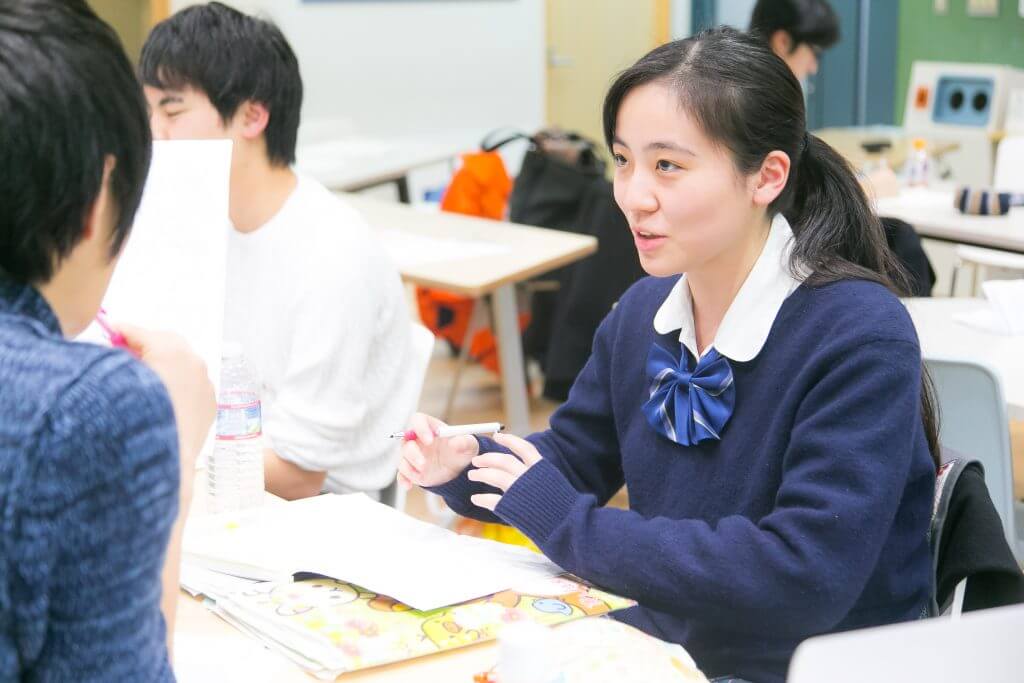【書類対策】早稲田大学政治経済学部 EDESSA (英語学位プログラム) の志望理由書を解説
【英文サンプルも掲載】早稲田大学政治経済学部 EDESSA 合格のための志望理由書の解説

こんにちは!ルークス志塾シェルパの市川創太郎です。
このページでは、早稲田大学政治経済学部の EDESSA (英語学位プログラム) の入試で課される志望理由書について担当シェルパがサンプルと解説を作成しました!EDESSA にチャレンジしてみたいと考えている学生さんは是非最後まで読んで入試対策の参考にしてみてください!
担当講師作成サンプル
※サンプルは一部フィクションを含みます
I hope to take the English-based Degree Program (EDESSA), which the School of Political Science and Economics (PSE) provides in your university. I want to study especially voting behavior in the department of politics. Through the research at your university, I will deepen my political understanding and increase Japan’s lower voting rate.
We need to improve the voting rate between the younger generation from 20’s to 30’s to balance social security and other political policies. Everyone knows that the government will introduce the policies which seem to be highly required by those who are more likely to vote. At the latest national election in 2017, only 33.85% of the 20’s and 44.75% of the 30’s balloted, even though more than sixty percent of 50’s and older people did (Ministry of Internal Affairs and Communications, n.d.). If younger generations hope to change society into where they can satisfy more, plainly, we need to persuade them to go voting.
I have considered this issue since I was about ten years old. On the national election in 2009, the democratic party finally won and achieved political power for the first time. I noticed that we, citizens, can change society through the election with this event. At the same time, I also realized that, however, only a few younger generations go balloting, and they are not enough to reflect their voices on the board.
I started to make an online page and open an SNS account to encourage younger generations to go to elections. When I was in tenth grade, I published my first article on my note, a free website to express our opinions. Continuously, I have posted more than 100 pages, and now, monthly achieve about 10,000 accesses and 27,000 views. Additionally, I focused on Instagram, which many youth use, and made about 300 posts so far. I believe that many viewers understood how important it is to go voting to change society in a democracy.
However, it might be difficult to say that my project succeeded in changing younger generations’ minds. Though I set the goal to persuade the twenties and thirties, about eighty percent of viewers are the forties and older; nevertheless, Instagram achieved fewer visits than my note.
There are following two reasons why I could not achieve my goal: focusing on the importance of election but less considering why they decide not to go and lucking raw voice by younger generations who changed their society overseas. Also, I need to take EDESSA to fix these issues. It could be necessary to understand how people behave toward the election and why they do not vote. For example, it requires considering whether they are indifferent to politics, have less knowledge, or have other problems. I noticed these problems when I turned to be in twelfth grade and started studying voting behavior. I tried not only to read books and papers but also visited some seminars held by political scholars. To proceed with further research, I would like to study with your faculty members, such as professor Airo Hino, one of the most zealous scholars of voting behavior.
Additionally, I would like to go studying abroad during a four years degree-seeking program. I need to listen to direct voices from those who have already changed their society. It could be closer to the younger generations in Japan. I introduced some movements and demonstrations mainly carried by younger generations such as “MeToo,” and also mentioned voting culture in Scandinavian countries, which has a higher voting rate between the twenties and thirties. By studying abroad, I need to share their ideas for Japanese people on my website and absorb their cultures, encouraging youth to participate in politics actively.
Through the experiences, including these two plans, I would like to establish my knowledge of politics and broad ideas based on various backgrounds. These academic aspects can enhance my power of influence via the website and Instagram, and it could be the path to change society by encouraging Japanese youth to take part in our politics. Therefore, I am eager to enter your university and take EDESSA, which I need to take to achieve my goals. (699 words)
Reference
Ministry of Internal Affairs and Communications. (n.d.). Syugiin giin senkyo ni okeru nenndaibetu touhyouritsu (chuusyutsu) no suii [A change in a voting rate for each generation on national elections of the lower house]. Retrieved from
https://www.soumu.go.jp/main_content/000255967.pdf
EDESSA 合格のための志望理由書解説
第1段落
第1段落は絶対に Introduction になります!EDESSA の中でもどの学科を志望しているのか明確にし、また、EDESSA に入る目的も簡潔に示してください。
第2段落
ここでは、志望理由というよりはむしろ自らの抱えている問題意識についての背景をまとめています。文章中では重要度の低い部分となっており、志望理由の内容によっては不要な場合もあります。限られた語数の中になるので一般常識にも近い情報は最低限に留めましょう。
第3段落
ここでは、問題意識を持つきっかけとなった原体験について語っています。「気付き」のきっかけとなったであろうあなただけの体験について欠けるとより良いものに仕上がるでしょう!
第4段落
ここでは、自らの気付きに対する実際のアクションをまとめています。この段落やのちの段落にもあるように実際に Web ページを作成したり、研究者の主宰するセミナーへの参加など様々なアプローチがあります。AO 入試では本人の志とそれに追する経験や行動が重視されます!是非積極的にアクションを起こしてみましょう。
第5段落
自らのアクションから得た学びに気づき次の行動に移すことも大切になります。PDCA (Plan, Do, Check, Action) サイクルを回しながら自らの学びを深めていけるとより良いです!
第6段落
ここでは、さらなるアクションと、EDESSA でき対する学びについてまとめています。あくまで、ここで求められているのは志望理由書なので、なぜ EDESSA に入りたいのか、なぜそこでなくてはならないのかを自らの熱意とともに伝えましょう!ここにもあるように教授の研究分野を把握したり授業やゼミの内容を押さえておくことも大切です!
第7段落
こちらも同様、自らのアクションにつなげて志望理由を示しています。
第8段落
最終段落は必ず Conclusion となります。ここまでの要点をまとめ、EDESSA への入学を強く希望していることを伝え切りましょう!
参考文献
参考文献は利用する場合もしない場合もあります。ここでは大学で多く使われる APA style という形式に則って記載されています。
全体を通して
ここでは around 1000 words という要求に対し約700語と不足気味になっています。原体験の充実や、直接的な志望理由の具体化などより深みのある内容を含めればおよそ規定の語数となるはずです。
志望理由書は学生さん一人ひとりの「志」や持っているビジョン、経験などによって内容も変わってきます。あくまでこちらは一例として、自らの志望理由をしっかりと伝えられるように作成していきましょう。
早稲田大学に関連する記事一覧(学部別の対策方法など)
-
【入試解説】早稲田大学創造理工学部早稲田建築総合型選抜(AO入試)〈創成入試〉
-
【入試解説】早稲田大学文化構想学部国際日本文化論プログラム(JculP)
-
【入試解説】早稲田大学社会科学部全国自己推薦入学試験
-
【入試解説】早稲田大学基幹理工学部英語プログラム入試
-
【入試解説】早稲田大学創造理工学部英語学位プログラム入試
-
【入試解説】早稲田大学国際教養学部AO入学試験
-
【入試解説】早稲田大学先進理工学部特別選抜入試
-
【入試解説】早稲田大学政治経済学部グローバル入試
-
【解説】早稲田大学理工学部 英語学位プログラム総合型選抜(AO入試)の対策方法
-
【解説】早稲田大学社会科学部 ソーシャルイノベーションプログラム(TAISI)グローバル入試の対策方法
-
社会科学部(グローバル入試・一般入試・全国自己推薦入試・ソーシャルイノベーションプログラム(TAISI) 総合型選抜(AO入試))
-
【解説】早稲田大学政治経済学部EDESSA (英語学位プログラム)総合型選抜(AO入試)の対策方法
-
【徹底対策】早稲田大学 文化構想学部 総合型選抜 合格の秘訣
-
創造理工学部(創成入試・一般入試)
-
【解説】早稲田大学国際教養学部 総合型選抜(AO入試)の対策方法
-
スポーツ科学部(スポーツ自己推薦入試・一般入試・新思考入試)
-
早稲田大学社会科学部の総合型選抜(AO入試)まとめ
-
早稲田大学政治経済学部の総合型選抜(AO入試)まとめ
-
【解説】早稲田大学文化構想学部JCulp (国際日本文化論プログラム)
最後に
ルークス志塾ではここには書ききることのできなかった対策方法を含め学生さん一人ひとりに寄り添った指導を通して志望校合格へのサポートをさせていただいております。志望理由書の作成に限らず受験対策等でお困りのことがありましたら是非ご相談ください!全力でサポートさせていただきます。無料相談会も受け付けておりますので、お気軽にお問い合わせください!
